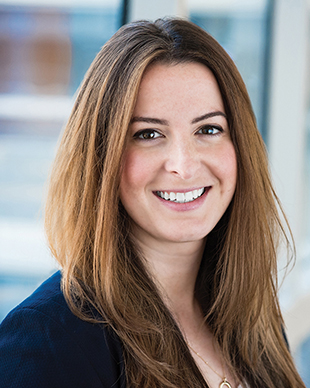GEN NEXT: Four Ways to Level Up Your Fraud Detection Skills
Auditors—and CPAs of all stripes—can use these four strategies to boost their fraud IQ.
By Kate Burian, CPA, CFE | Spring 2022

Once the opportunity of a gap in internal controls presents itself, add in motive and rationalization, and you could have yourself some fraud. As a forensic accountant, I’ve seen company checks deposited into personal accounts, carte blanche use of credit cards, fake vendors, ghost employees, and altered invoices—often from longtime, trusted employees.
So why don’t auditors always catch these things? You may be aware of the expectation gap between what the public assumes the auditor is doing and the auditor’s actual responsibilities. Forensic accountants and fraud examiners are often hired to respond to a specific allegation of misconduct. From there, we use our narrow scope to collect information, conduct interviews, report our findings, and make recommendations on closing those internal control gaps. This limited purview is part of what makes uncovering fraud so challenging, but my audit background has proved essential in getting me to this point in my career as a forensic investigator.
Even if you don’t see yourself transitioning to an advisory role to take on fraud, there are still some steps you can take to increase your fraud acumen while staying within the bounds of your role.
1. Familiarize yourself with fraud schemes. The Association for Certified Fraud Examiners (ACFE) has some great free resources, including a study on occupational fraud that I found very helpful. (Check it out at
www.acfe.com/rttn.) Learning more about how fraud occurs can help enhance your understanding of risk and help you brainstorm about what could go wrong. Know that while internal controls may look fine on paper, they can be different in practice. Are employees hoping that someone else in the approval chain is substantively reviewing transactions but not doing so themselves? Are employees OK denying approval when there isn’t sufficient support? Make sure everyone isn’t just going through the motions.
2. Rethink your fraud interviews. Don’t assume everyone you interview knows what fraud looks like. Use your knowledge about the company to come up with more pertinent questions that are tailored to the person you’re speaking with. (This is also your chance to speak directly with people outside your usual accounting contacts—use this time wisely!)
3. Check your bias and professional skepticism. We generally believe that people are inherently honest and most of us would rather avoid confrontation. Don’t be afraid to go back to your client to ask for clarification or additional corroborating evidence. Then watch out for confirmation bias, which comes into play when we weigh evidence that fits our assumptions and expectations more heavily than evidence that doesn’t. Remember: That contradictory evidence might be telling you something!
4. Highlight the importance of a whistleblower hotline. It’s not a matter of if your client will be subjected to fraud, but when, so make sure they have a mechanism to collect anonymous tips—one of the most effective ways to detect fraud in organizations. On your next trip to the client, come armed with stats from the ACFE report mentioned above on how effective a hotline is.
Fraud affects every industry and companies of every size, costing trillions in damage globally. To address it, we have to know more about it—only then can we all play a role in helping to detect and prevent fraud.
Illinois CPA Society member Kate Burian, CPA, CFE, is a senior manager of forensic investigations at Sikich. She has served as a firm ambassador and a member of the Young Leaders Advisory Council and Women’s Connection Committee.